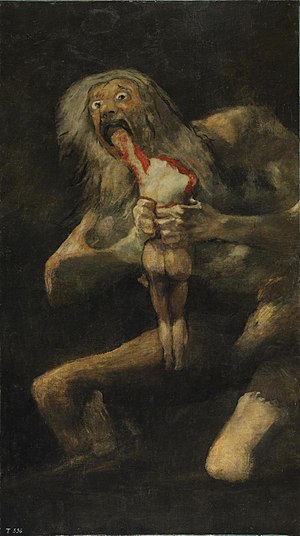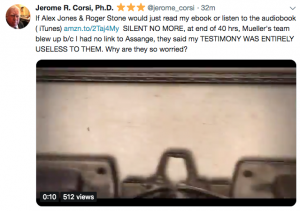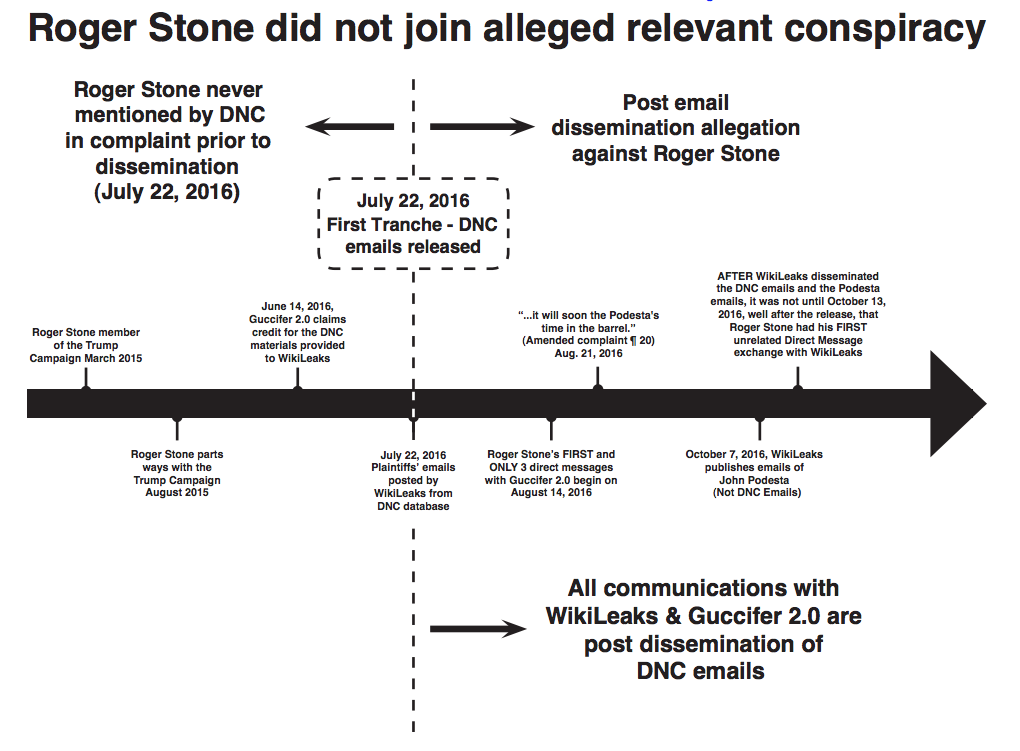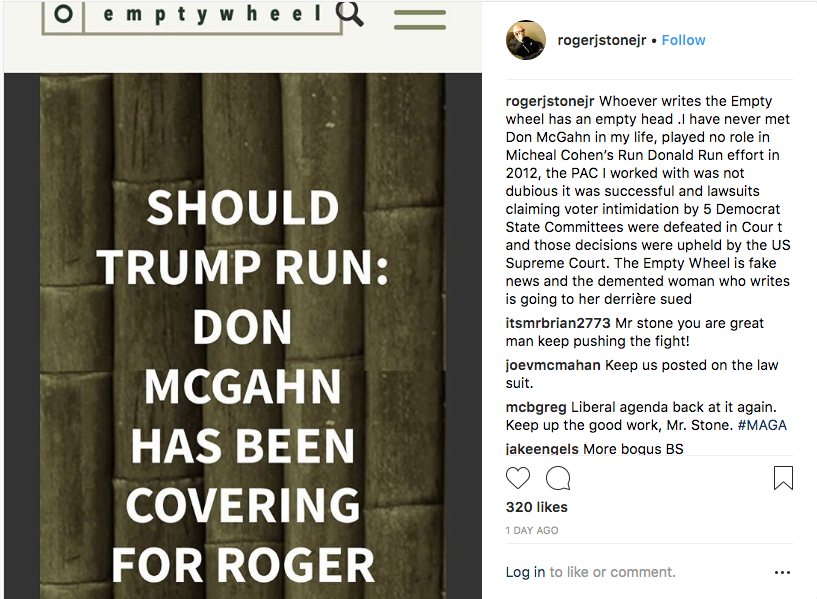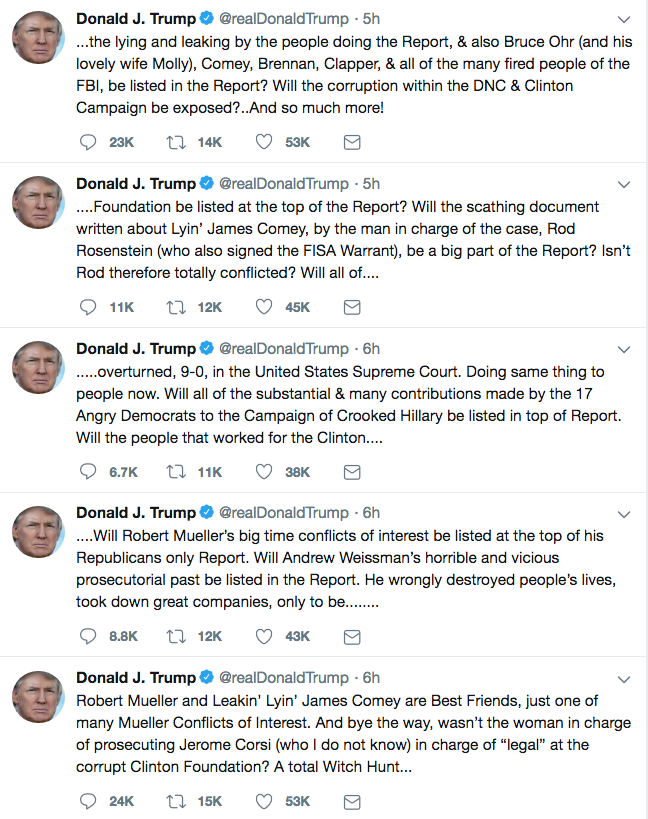The other day (I forget which day it was, to be honest) I wondered aloud whether, as it became clear the walls were collapsing around Trump, he’d make a rash move to pay off his debts, perhaps to salvage something for his post-Presidenting life.
I’m not sure we’re quite at that point yet. But in recent days, a ton has happened it’s hard to make sense of.
This post doesn’t pretend to offer answers. I just want to write down everything I think is happening in one place — blogger’s prerogative, call it.
Mattis resigns, citing Trump’s fondness for authoritarians
The most alarming news is not that James Mattis resigned, but how he did so. In his resignation letter, he cited the importance of NATO, and China and Russia’s authoritarianism that leads them to promote their interest over that of their neighbors, America, and our allies, before he made it clear that Trump disagrees with Mattis in rejecting those authoritarian values.
One core belief I have always held is that our strength as a nation is inextricably linked to the strength of our unique and comprehensive system of alliances and partnerships. While the US remains the indispensable nation in the free world, we cannot protect our interests or serve that role effectively without maintaining strong alliances and showing respect to those allies. Like you, I have said from the beginning that the armed forces of the United States should not be the policeman of the world. Instead, we must use all tools of American power to provide for the common defense, including providing effective leadership to our alliances. NATO’s 29 democracies demonstrated that strength in their commitment to fighting alongside us following the 9-11 attack on America. The Defeat-ISIS coalition of 74 nations is further proof.
Similarly, I believe we must be resolute and unambiguous in our approach to those countries whose strategic interests are increasingly in tension with ours. It is clear that China and Russia, for example, want to shape a world consistent with their authoritarian model — gaining veto authority over other nations’ economic, diplomatic, and security decisions — to promote their own interests at the expense of their neighbors, America[,] and our allies. That is why we must use all the tools of American power to provide for the common defense.
My views on treating allies with respect and also being clear-eyed about both malign actors and strategic competitors are strongly held and informed by over four decades of immersion in these issues. We must do everything possible to advance an international order that is most conducive to our security, prosperity and values, and we are strengthened in this effort by the solidarity of our alliances.
Because you have the right to have a Secretary of Defense whose views are better aligned with yours on these and other subjects, I believe it is right for me to step down from my position. [my emphasis]
The precipitating event, though, was Trump’s decision to pull out of Syria.
Officials said Mr. Mattis went to the White House on Thursday afternoon in a last attempt to convince Mr. Trump to keep American troops in Syria, where they have been fighting the Islamic State. He was rebuffed, and told the president that he was resigning as a result.
One source says that Trump’s decision to close the Special Forces base in Syria is part of the problem.
The US is set to shut a special forces base in Syria that has been the subject of repeated Russian complaints, and that some US officials have cast as a key part of US efforts not just to defeat ISIS but to counter Iranian influence in the country.
Muhannad al-Talla, a rebel commander at al-Tanf, a US base near the Syrian border with Jordan, told BuzzFeed News that the base would see the withdrawal of the US troops who have trained and fought alongside rebels there.
I’m wondering if this base was involved in the shellacking of Putin ally Yevgeniy Prigozhin’s mercenaries.
Another is Erdogan’s threat (or promise) to massacre our longstanding Kurdish allies.
Defense officials tell me Mattis went to the White House to discuss Syria & that he was livid after reading reports that Turkey’s Defense Minister threatened to kill US-backed Kurds & put them in ditches once the US withdrew. He was incensed at this notion of betrayal of an ally.
Effectively, it seems, Mattis told Trump, “it’s me or Vladimir Putin” … and Trump chose Putin.
Erdogan exercises leverage — or is he the messenger boy?
But it wasn’t exactly — or just — Putin that finally got Trump to deliver on the payback he started delivering 14 hours after polls closed in 2016. It was Recep Tayyip Erdogan. As I noted, Trump met with Erdogan in Argentina but not — after the Michael Cohen allocution made it clear Putin was enticing Trump with a Tower deal in 2016 — Putin.
Multiple reports say a call Trump had with Erdogan on Friday was the precipitating factor. Here’s a really alarming account of that call.
That leads me to wonder what leverage Turkey, specifically, has over Trump, such that he’d pull out of Syria in response to a threat to massacre the Kurds, which will make it easy for Turkey to massacre the Kurds.
And I have to believe Turkey’s ploy with the Jamal Khashoggi execution is part of it. Erdogan never gave a shit that the Saudis lured a dissident to their soil to dismember alive. Erdogan himself pursues such repression, even if he conducts it with a bit more cover.
Indeed, whatever Erdogan has over Trump also has him considering extraditing Fethullah Gulen to Turkey for what would certainly be similar treatment — the payoff Turkey was requesting back in December 2016 when Trump’s chosen National Security Advisor was still hiding that he had been an unregistered agent for Turkey.
Perhaps Turkey has proof not just implicating Mohammed bin Salman in the execution, but Jared Kushner in green-lighting it, or possibly even Trump?
Mueller’s moves toward endgame
It’s hard — particularly given comments from people like Nancy Pelosi — to separate all this from what feels like an approaching Mueller (attempted) endgame. The lead-up to Flynn’s aborted sentencing featured the following:
- Flynn makes an ill-considered attack on the legitimacy of the Mueller probe
- Emmet Sullivan orders the release of the documents with which Flynn was attempting to undercut Mueller
- Sullivan orders the far more damning Flynn 302 that, among other things, reveals that Turkey and Russia both had compromising information on Trump and Flynn
- DOJ indicts Flynn’s business partners for hiding how Turkey angled to force DOJ to extradite Gulen
- At Flynn’s sentencing hearing, Sullivan emphasizes that Flynn had been an agent of Turkey while ostensibly working for Trump and mentions the word treason
Plus there’s evidence that Jared Kushner — who has been the boy plaything for all these ruthless players — probably tried to attack Flynn even while he was having a grocery store tabloid pimp the Saudis.
And it was revealed that the Mystery Appellant refusing to provide information to Mueller is a foreign-owned corporation, probably a Russian or Middle Eastern bank or sovereign wealth fund funneling money to Trump or Jared. The company appears to have asked for an en banc review today.
Mueller also asked for and got the House Intelligence Committee to release its transcript of Roger Stone’s testimony. The timing of this is the interesting thing: Mueller chose to do this when Republicans had to (and did) vote to expose Trump’s top political advisor to indictment. He could have waited, but didn’t. That suggests either he wanted Republican buy-in, or he needs the transcripts now, to finalize his case against Stone before Democrats take over in a few weeks.
The day after SSCI released materials on James Wolfe, he was indicted.
So things are moving to a head in the Mueller probe, and in a way that both Russia and Turkey may be implicated.
Matt Whitaker performs a headfake before taking the corrupt step he was hired to take
Then there was the news today on big dick toilet salesman Matt Whitaker. This morning, multiple outlets reported that DOJ had told Whitaker he didn’t have to recuse from the Mueller probe. After that became the headline, however, multiple outlets revealed that the truth was the opposite: an ethics advisor had told Whitaker he should recuse, and having heard that, Whitaker consulted a hand-picked committee that predictably told him not to.
Within days of the president’s announcement in early November that he had put Whitaker in the role on a temporary basis, Whitaker tapped a veteran U.S. attorney to become part of a four-person team of advisers on his new job, according to a senior Justice Department official. Their guidance included the question of whether Whitaker should recuse himself from Mueller’s investigation because of his past statements regarding that probe and because of his friendship with one of its witnesses, the official said.
Whitaker never asked Justice Department ethics officials for a formal recommendation, nor did he receive one, this official said.
However, after Whitaker met repeatedly with Justice Department ethics officials to discuss the facts and the issues under consideration, a senior ethics official told the group of advisers on Tuesday that it was a “close call” but that Whitaker should recuse himself to avoid the appearance of a conflict of interest, the official said. Whitaker was not present at that meeting, they said.
Those four advisers, however, disagreed with the ethics determination and recommended to Whitaker the next day not to recuse, saying there was no precedent for that, and doing so now could create a bad precedent for future attorneys general.
That big dick toilet salesman Whitaker did this is not surprising.
That he chose to roll out this admission today is worth noting. One outlet reported that, up until today, Whitaker had not been briefed on the Mueller probe. Apparently, in the wake of a judge raising treason concerns after having reviewed Mike Flynn’s behavior, Whitaker has made the move to become Trump’s mole on the Mueller probe.
Update: BuzzFeed got a hold of the DOJ letter here. It makes it very clear Whitaker ignored advice to recuse.
Update: Marty Lederman notes that this letter fails to conduct a key part of the recusal analysis: why he would make a more appropriate supervisor for Mueller than Rod Rosenstein.
Trump prepares to shut down government
All this is happening as Trump prepares to shut down the government because Fox News laughed at him for getting pantsed by Nancy Pelosi.
Fox & Friends co-host Steve Doocy said the Democrats had won the showdown, and Trump had lost.
He launched into a tirade saying the president “loses, and the Democrats will win everything” based on his apparent decision to compromise with House Speaker Nancy Pelosi and Sen. Chuck Schumer.
Doocy said Trump’s defeat would not only risk his campaign commitment to build the wall, but also bring into question his electoral promises to curb the rest of the government’s spending.
In response, over the course of today, Trump told Republicans he’d veto any continuing resolution that didn’t include $5 billion for his steel slat wall, making it much more likely we’ll have a shutdown as Trump skedaddles to Mar-a-Lago to take calls from his authoritarian buddies.
This may be entirely unrelated. After all, Fox and Friends is Trump’s bubble, that’s the only place where he considers losses to matter, and after the truth that Pelosi had bested him started to seep through, the narcissist-in-chief had no choice but to make a rash demand that Republican politicians sacrifice their careers in deference to his tantrum.
Which is to say that this behavior is precisely what we should expect when a narcissist’s mirror tells his he has been bested by someone he must demean.
Or maybe it is related?
Putin — or someone else — is calling in receipts
As I’m thinking about these things, I keep thinking back to an argument I made in August. I argued that Putin had compromised Trump not with a pee tape, but by ensuring his people kept receipts every time Trump got sucked deeper and deeper into a deal with Russia.
People are looking in the entirely wrong place for the kompromat that Putin has on Trump, and missing all the evidence of it right in front of their faces.
Vladimir Putin obtained receipts at each stage of this romance of Trump’s willing engagement in a conspiracy with Russians for help getting elected. Putin knows what each of those receipts mean. Mueller has provided hints, most obviously in that GRU indictment, that he knows what some of them are.
For example, on or about July 27, 2016, the Conspirators attempted after hours to spearphish for the first time email accounts at a domain hosted by a third-party provider and used by Clinton’s personal office. At or around the same time, they also targeted seventy-six email addresses at the domain for the Clinton Campaign.
But Mueller’s not telling whether he has obtained the actual receipts.
And that’s the kompromat. Trump knows that if Mueller can present those receipts, he’s sunk, unless he so discredits the Mueller investigation before that time as to convince voters not to give Democrats a majority in Congress, and convince Congress not to oust him as the sell-out to the country those receipts show him to be. He also knows that, on the off-chance Mueller hasn’t figured this all out yet, Putin can at any time make those receipts plain. Therein lies Trump’s uncertainty: It’s not that he has any doubt what Putin has on him. It’s that he’s not sure which path before him — placating Putin, even if it provides more evidence he’s paying off his campaign debt, or trying to end the Mueller inquiry before repaying that campaign debt, at the risk of Putin losing patience with him — holds more risk.
Trump knows he’s screwed. He’s just not sure whether Putin or Mueller presents the bigger threat.
It has since become clear that not just Russia, but at least also Turkey and whatever bank is fighting a demand from Mueller that it turn over evidence of Trump’s graft, also have receipts.
Nevertheless, at the moment where it has become increasingly clear that Mueller knows much of whatever blackmail these partners have over Trump, Trump has chosen, instead, to alienate the Senators who might keep him from being impeached by evacuating from Syria and, later reports make clear, Afghanistan.
Trump is, on a dime and without warning to our closest allies, rolling up the American Empire. And he’s doing it not because he’s a peacenik — as far too many self-described progressives are trying to claim — but because ruthless, committed authoritarians have convinced him he needs their continued approval more than he needs the approval of even the Republican hawks in the Senate.
Update: I forgot to mention that the stock market is crashing. It started in response to Trump’s trade wars and bullying of the Fed, but accelerated given his threats to shut down the government.


